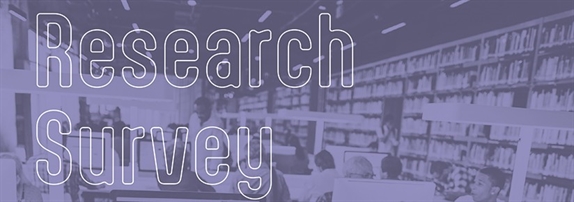
A new report by Dr Andrew Cox, Senior Lecturer at the University of Sheffield offers fresh insight into the adoption, use and perceptions of artificial intelligence across the library and information profession. The study, which builds
on previous research, provides a snapshot of how professionals are engaging with this fast-evolving technology, and the attitudes shaping its future role in the sector and how that impacts users.
This report follows on from the CILIP commissioned, landmark report led by Dr Cox: The impact of AI, machine learning, automation and robotics on the information profession published in 2021.
This new report provides a clearer understanding of where we currently stand as a sector, as employers, and as individual professionals in terms of AI adoption, use, and attitudes in the libraries and information profession.
The findings reveal that AI, as understood by most respondents, is largely synonymous with generative AI tools. While other forms of AI have potential to reshape library services, their development appears limited to a handful of institutions.
Individual librarians are experimenting creatively with generative AI, often to save time on routine tasks rather than to fundamentally transform services. Most institutions have either implemented or are drafting AI policies, though these
are often at the broader organisational level rather than specific to library services. Still, the report characterises this as an “early days” moment for AI in libraries.
Ethical concerns are nearly universal, with questions of accuracy, reliability, legality, and environmental impact cited as key reasons for caution. Because many applications rely on external AI platforms beyond the control of libraries,
respondents often approach the technology defensively. Limited resources and in-house expertise are typically also slowing adoption.
The most common activity that there is in the area of AI literacy, is training users to understand AI as an aspect of information literacy, rather than direct uses of AI services.
Resource and expertise limitations also seem to be inhibiting take up of AI. But there does appear to be some activity around use of AI for chatbots and knowledge discovery. Follow-up research could usefully explore these cases of useful
applications.
Interestingly, fears about job displacement – often central to AI debates – were largely absent from survey responses. While no direct question addressed the issue, it did not surface in open-text comments, suggesting it is not a dominant
concern among information professionals at present.
Overall, the report depicts a profession balancing curiosity with restraint. Ethical considerations and accuracy issues are the primary restraints on adoption currently, even as generative AI shows tangible benefits from the user perspective.
The central question, Dr Cox suggests, is how libraries can present their cautious approach as a strength while remaining open to AI’s opportunities.
Read the full report here.



